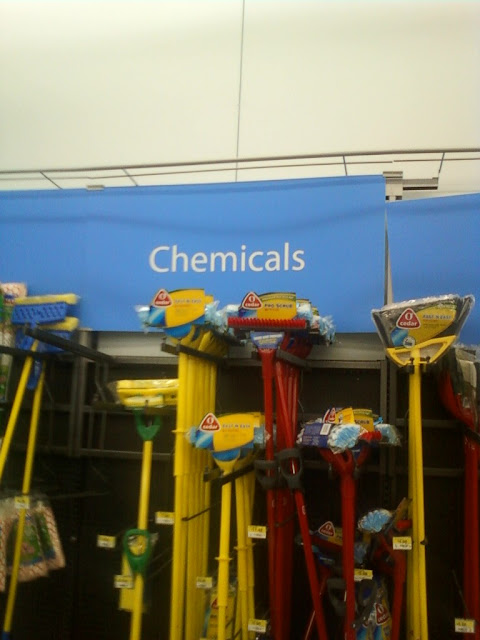The question I'm left with is this: What is the right way to fight chemophobia?
I certainly don't feel like I've been punching down. I don't spend my time on the internet to mock someone who doesn't have the same education that I do. I'm not trying to get in the "smart kid's club" by proving that I know a lot about chemistry. In fact I've been very upfront - I don't think I'm incredibly special or inherently smart. For this very reason I think science - to truly be science - must be clear and easily communicated. That doesn't always mean it will be easy to master, but science is designed to simplify, not complicate, our universe. It is the universe - not science - that is hard to understand.
Onto chemophobia, then. How do we tell someone they are wrong without making them feel wrong. Someone that feels wrong is less likely to accept what you have to say - you haven't countered their argument you've insulted them. Accepting that you're right means accepting your insult. I think it's important, and I've said it before, that we don't belittle someone that is most likely just misinformed.
That's why I don't think the "but everything is a chemical" argument is very persuasive - someone using the word chemical instead of toxin isn't using the word chemical in a "everything is a chemical" kind of way. If you're convinced that chemical always means "all matter in the universe" take a look at this picture:

|
| Thanks to for this photo |
Unless you can look at this picture and honestly say that Wal-Mart has correctly labeled their brooms and mops you must admit that "chemical" can have more than one meaning. Colloquially it means something closer to "toxin" or "harsh cleaner" or "industrial additive". You get the idea. It usually does mean something that you don't want to ingest.
Often when I see #chemophobia on Twitter it really just comes down to a vocabulary misunderstanding. If the only problem with an article is the misuse of the word chemical, then maybe we should let it go. Perhaps we, as chemists, are a little too protective of our namesake. If the public understands chemical to mean "toxin" then we need to acknowledge that - not mock it. Go ahead and point out that everything is a chemical (by your definition at least), but don't let that be the end of your argument. Continue on to point out why the specific chemical in question is not bad for you (or whatever the case may be).
It's a bit of tightrope that we walk, though, and sometimes we over-correct. Let's face it, chemicals can be very bad for you. Sometimes, in the midst of our #chemophobia rage we seem to be forgetting that - or at least trying to ignore it. Most of the things that the public labels as "chemicals" probably are toxins. My guess is that Wal-Mart, in the picture above, meant to stock bleach, ammonia, and other cleaners under that sign. I wouldn't suggest drinking any of those. We say nothing when ammonia is called a chemical (because, well, it is a chemical). The word chemical, then, becomes associated with bleach, ammonia, and industrial strength solvents. That association makes it difficult to teach someone that aspartame is a chemical but you can drink a diet soda just fine. Chemical is already so well connected with toxin that it's not always an easy task.
I think we (chemists) really are in a bit of a tight spot. Ash may be onto something - we really might need to start up the National Center for Chemical Education. I don't think it's a simple solution, but it may be the right solution.
But whatever we decide to do just stop throwing punches, ok?
